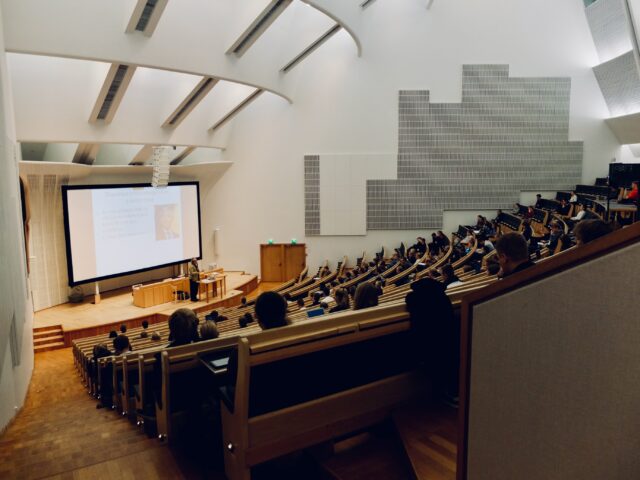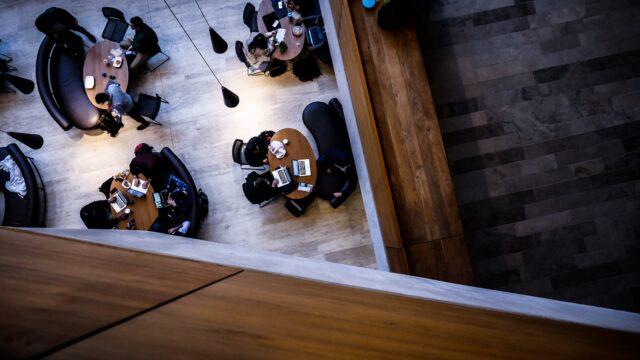Dalhousie University and the University of Calgary are collaborating to address the health inequities of incarcerated Indigenous women. Co-principle investigators Dr Jennifer Leason of UCalgary and Martha Paynter of Dal have received a $500K grant from CIHR for the project, which will involve knowledge keepers, clinicians, and researchers from Dal, McMaster University, Lakehead University, Simon Fraser University, the University of British Columbia, and the University of Saskatchewan. “We have an ethical imperative to address this,” said Paynter. “The Truth and Reconciliation Commission demands it, as does the National Inquiry into Missing and Murdered Indigenous Women and Girls.”

Indigenous Top Ten News
January 26, 2022
Algoma University professor and Indigenous Paleo Archaeologist Paulette Steeves has written a new book that challenges the belief that humans came to North America during the last ice age. While archaeologists have believed that the first people to come to North America came across the Bering Strait around 11,500 to 12,000 years ago, this history conflicts with the viewpoints of some Indigenous peoples who understand that their ancestors have been here “since time immemorial.” The discovery of fossilized footprints in 2017, which were dated to between 21,000 and 23,000 years old, have helped create change, while archaeologists who had opposed this idea have begun to be more open to it. Steeves’ book gathers arguments and evidence that point to a human presence in North America for at least tens of thousands of years. “This was an area that was an academic violence against Indigenous people,” said Steeves, who is Cree-Metis. “This is where their languages grew. This is where they’re from.”
A recent article from CBC discusses the Alberta College of Body Art, a tattoo program that focuses on postsecondary training rather than apprenticeship. Cree tattoo artist and founder Bobbi Jo Matheson says that the program, which takes six months to complete, provides students with a broad education in topics such as the history of tattooing, equipment techniques, marketing, and legal issues. The school goes against the typical apprenticeship route in order to give students a better learning experience, as some students have challenges with finding good mentors. Matheson says that though some artists in the industry have criticized the program, she believes that postsecondary programs like the one she offers will become the norm.
The Surrey Board of Education has received new sketch plans for Snokomish Elementary and an addition at Semiahmoo Trail Elementary, both of which are in the design phase. The current plans for Snokomish Elementary include space for 655 seats, a daycare space, and the incorporation of First Peoples principles of learning and energy efficiency. The facility design would preserve the mature trees on the site. The Semiahmoo Trail Elementary addition includes 10 classrooms, which will increase the school’s capacity to 540 students, and will include breakout spaces, teaching stairs, and meeting rooms. The Snokomish Elementary school is scheduled to open in Spring 2025, while the new addition at Semiahmoo Trail Elementary is scheduled to open in Fall 2024.
The Nanaimo Ladysmith Public Schools’ education committee has recommended that an education committee be formed to examine and change the name of Coal Tyee Elementary School. SD68 staff say that the name was originally thought to represent “a positive story of collaboration between the colonial and Indigenous peoples as well as representing Nanaimo’s heritage with respect to coal mining.” However, Ki-et-sa-kun (Coal Tyee) is also seen by Snuneymuxw “as a tragic figure given his interaction with the colonial peoples led directly to purposeful colonization of the area.” Tofino-Ucluelet Westerly News reports that this means that the name does not align with SD68’s policy. Joan Brown, Snuneymuxw First Nation chief administrative officer and district knowledge-keeper, said that renaming the school is important: “When we think about Coal Tyee … it’s really suggesting that we take a deeper dive in terms of healing and of that deeper understanding of the ancestral lens.”
Trent University’s First Peoples House of Learning will be launching the Enwaaying Training Initiatives program in order to break down barriers for Indigenous women and drive systemic change. The project, which is funded by nearly $500K in funding from Canada’s Feminist Response and Recovery Fund, will provide interactive professional development workshops that will teach community leaders and decision makers about systemic issues facing Indigenous women and girls. The workshops will be developed and led by Indigenous women and will feature local elders. “[T]his new experiential training initiative has the potential to shift the paradigm we are working within – a fundamental part of changing the attitudes and beliefs that are at the foundation of our nation,” said First Peoples House of Learning Director Dr Dawn Lavell-Harvard.
The First Nations University of Canada has formally launched the Indigenous Continuing Education Centre (ICEC). ICEC will aim to share Indigenous knowledge and strengthen connections by offering Indigenous-focused short course programming, such as the 4 Seasons of Reconciliation professional development course. Individuals, professionals, communities, and businesses will be able to participate and earn digital credentials. FNU has partnered with the Association of Registrars of the Universities and Colleges of Canada (ARUCC) and MyCreds to provide a Digital Credential Wallet for learners so that they can access and share their credentials. “The Centre promotes a renewed relationship between Indigenous Peoples and Canadians through transformative learning about truth and reconciliation, and it offers much-needed programming for Indigenous people and communities” said ICEC Director Reila Bird.
Several First Nations schools in British Columbia have taken steps and made changes to secure a greater level of control over the education they offer. CBC says that 13 First Nations have been negotiating with the federal government on issues such as curriculum development, graduation requirements, and teacher and school certification. “It’s a very exciting time for us to take back that power, that governance, over education, and really work with our families and our children to see what would best serve them when they’re in school,” said Stephanie Atleo, who negotiated on behalf of the Cowichan Tribes. Four First Nations – the Lil’wat Nation, the Seabird Island Band, ʔaq̓am of the Ktunaxa Nation, and the Cowichan Tribes – have voted to ratify an agreement and will form a board to work on curriculum and teacher certification guidelines. In School District 57, the Lheidli T’enneh First Nation and McLeod Lake Indian Band have partnered to form the Indigenous Education Leadership Table, which will aim to raise awareness about Indigenous values, protocols, and ways of knowing.
McMaster University has opened a new Indigenous Health Learning Lodge (IHLL) at the Faculty of Health Sciences (FHS). The lodge, which officially opened yesterday, is named Tsi nón:we ayakonniyóhake táhnon aonsayakota’karitehake in Haudenosaunee and Mino Bimaadiziwin Mishkiki Aapjishnik Gamik’ in Anishinaabe. It was developed in response to the Truth and Reconciliation Commission’s recommendations and will provide a home for Indigenous faculty, staff, and students, as well as a space for those who would like to know more about Indigenization in the health sciences. IHLL will act as a hub for curriculum development, training, and advocacy and awareness initiatives. “There has been a huge increase in collective awareness of what’s happened to Indigenous Canadians, and many students at McMaster are interested in pursuing the conversation about making Canada a safer place for Indigenous people,” said IHLL Executive Director Alexandra Trottier, who is of Kanienkehaka (Mohawk) Wolf Clan and settler heritage. “We are beginning to accrue leadership at the university that can enact future systemic change.”
This fall, Grade 11 students in the St Clair Catholic District School Board will have a new requirement: completing a compulsory English course in First Nations texts. The course, titled “Understanding Contemporary First Nations, Métis, and Inuit Voices,” takes the place of other Grade 11 English courses. Students will have the opportunity to explore literary, informational, graphic, oral, and media text forms from First Nations, Métis, and Inuit cultures. Cortnee Goure, Indigenous Education Lead with SCCDSB, explained that the course will provide all students with the opportunity to engage in hands-on learning opportunities and learn about Indigenous issues from local Indigenous community partners. “Through awareness and understanding of the Indigenous story, may we build a Canada that is truly inclusive, a country where we care for the well-being of each other,” said Biindigaygizhig of the Chippewas of the Thames.
